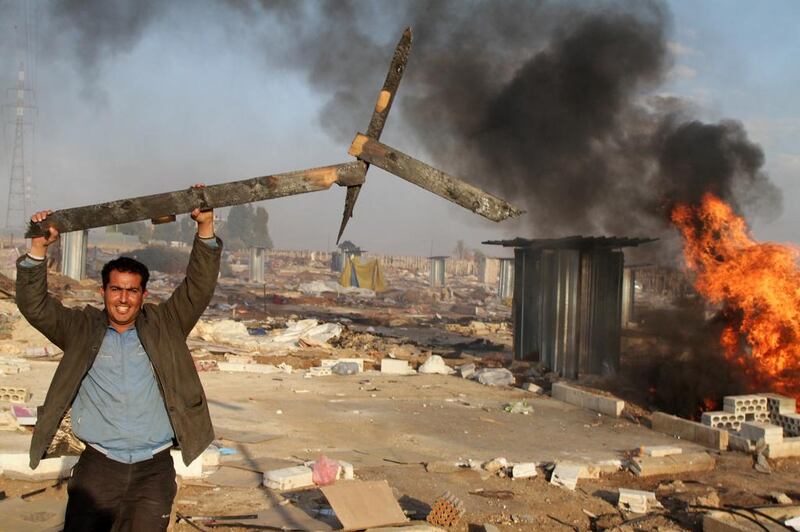BEIRUT // Lebanon’s government has given the army full responsibility for security in Tripoli for six months, the caretaker prime minister, Najib Mikati, said yesterday.
Mr Mikati spoke after a high-level security meeting at the presidential palace following three days of sectarian clashes in Lebanon’s second largest city.
Security officials say 12 people have been killed in the clashes between militia supporting opposing sides of the Syrian conflict, the latest in regular outbreaks of bloodletting in the city that started during Lebanon’s own civil war but have intensified since the Syrian revolt started in 2011.
The clashes have wounded at least 61 people, among them 12 members of the Lebanese army.
Sectarian fighting in Lebanon has not been limited to Tripoli. Last month, twin explosions outside the Iranian Embassy in Beirut killed 26 people. Iran is a key ally of Bashar Al Assad, Syria’s president, and support’s Lebanon’s Shiite movement, Hizbollah.
As well as sectarian tensions stoked by Syria’s war, Lebanon is also struggling to cope with the influx of refugees from the conflict.
Yesterday, residents of a village in eastern Lebanon forced hundreds of Syrian refugees from an informal campsite, setting fire to tents after accusing them of raping a mentally-disabled man.
But a doctor who examined the man said there was no evidence he was attacked, and one resident of the village said the alleged rape was a pretext to drive the refugees from the site.
The incident comes amid warnings from the Lebanese government and aid agencies about tensions between Lebanese communities and the more than 800,000 Syrian refugees who have fled to the small country, which has its own long history of unrest.
The informal camp in the eastern Bekaa village of Qsar Naba housed apout 400 refugees in around 100 tents and shelters.
On Sunday a group of residents stormed the camp, setting fire to some of the tents.
After the attack, many of the refugees began dismantling their shelters and spent Sunday night sleeping in the open nearby.
The residents returned yesterday, the refugees said, setting fire to at least 15 tents and knocking down others.
Ahmed Abdul Mahmud, 33, a refugee, said members of the local Dirani family led the attack.
“The Diranis burnt the tents and then refused to allow the fire brigade through to put the flames out. There’s not a single tent left for us,” he said, weeping.
He said the attackers beat the refugees and stole their belongings.
“I have three children, the eldest of whom is just six. We don’t know where to go. After this I just want to go back to Syria.”
The attack came after members of the Dirani family, who own the campsite land, accused four refugees of sexually assaulting a 29-year-old mentally disabled member of the family.
“He was passing by the camp, and four residents lured him inside a tent and raped him,” Ali Dirani said.
“The man’s mother found traces of blood on his trousers and informed the residents of the village,” he said.
But the doctor who examined the alleged victim said there was no sign he had been raped.
Dr Ahmed Walid Suleiman said he had submitted a report saying “there is no medical proof that indicates the young man was subjected to any kind of attack.”
“There are no signs of violence, or blood or bruising,” he added.
A resident of Qsar Naba described the rape allegation as “fabricated”.
He said the dispute “stems from the Dirani family, who own the land, wanting to get it back and not finding a way to get rid of the refugees.”
* Reuters with additional reporting by Agence France-Presse





